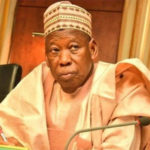With fuel prices hitting a record N1,070 per litre at NNPC filling stations in Kano State, many residents are turning away from petrol-powered motorbikes. The shift towards electric bikes is gaining momentum as a cheaper and practical alternative, especially as the living cost crisis continues to take a toll on residents.
As Nigerians grapple with the persistent fuel price hike after subsidy removal, many Kano residents are opting for electric-powered motorbikes as a solution for daily commuting. Electric bikes are quickly becoming the preferred alternative because users save cost by avoiding petrol, Weekend Trust gathered.
Saleh Umar, an electric motorbike user, said, “I use the bike for my daily commuting now, unlike in the past when I had to spend up to N3,000 on just fuel. Sometimes I spent more than that. But now, I dont”.
Abubakar Sani, a motorbike seller, highlights the benefits of electric bikes: “With this electric bike, there’s no need to buy engine oil or the costly fuel. That’s why some of our customers are choosing it. Prices vary according to brand, with some going for N750,000, N800,000 and N900,000.”
- C & C: Bauchi’s 30-year-old market where commodities are cheap
- Forgotten souls: The story of lepers in Niger
Despite unreliable and unstable power supply in parts of the state, both users and sellers of electric motorbikes say they’ve found an alternative to petrol. They said electric bikes can be charged with solar power, unlike petrol-powered bikes, which rely only on fuel whose price has more than doubled this year.
Dauda Imam, a motorbike seller, said “Yes, electricity can be a challenge for using the bike, but the availability of solar charging option is a solution unlike the fuel-powered bikes which only run on fuel.”
Ishaq Salihu, a motorbike mechanic, told Weekend Trust that “Electric motorbikes can be charged with solar power, but they need a setup that produces alternating current, not just direct current like most solar systems. That’s an advantage of electric bikes.”
The shift to electric bikes isn’t just about saving costs; it’s also about reducing carbon emissions. With zero harmful gases, electric bikes are key to improving air quality in urban areas like Kano, Weekend Trust gathered. Despite their rising popularity, major motorcycle dealers say demand for petrol-powered models remains strong.
Sanusi Idris, who is the publicity secretary of the Motorbike Sellers Association at WAPA area of Fagge Local Government Area, said, “We can’t say the rise of electric bikes usage has affected the market for petrol-powered models just yet. People are still getting used to the electric bikes. The market for fuel-powered bikes remains strong because some prefer it because of the availability of spare parts and reliability.”
Challenges electric bike owners face
Although it saves cost, maintenance is a big challenge for users as mechanics that can fix the machine if it develops fault are not readily available, our correspondent gathered.
Murtala Abdulaziz, who sells electric motor bikes said that although the mechanics who can fix them are scarce, but expressed optimism that their number would increase as more people embrace the use of the machine which is environmentally friendly.
He said, “Users just need to charge it constantly and charging is a challenge because public supply of electricity is not stable and constant. But I think the solar system has filled that gap. I admit that we do not have enough mechanics who can fix it when it develops technical fault.”
Another user, Abubakar Sadiq, said he bought his electric bike two months ago but had to change one of the tyres which was a bit difficult to find in the market. Sadiq said from where he lives at Panshekara to his office at Ibrahim Taiwo Road, is a distance of about 15 kilometres, and he uses the bike to commute daily at no extra cost.
“Charging is my only problem because I will require more batteries to do that. One or two batteries are not enough otherwise you would be plunged into darkness while charging the machine,” Sadiq added.
But Kamil Haruna, who our correspondent met taking a rest after a ride, said the machine requires little charging time as his wife usually charges it in the morning before he wakes up.
“It can cover 70 kilometres after a day’s charging. However, if you carry a passenger then you can only cover 35 kilometres because of the extra load. When you carry some load, don’t expect to move fast and I hardly cover 65 kilometres a day. I am honestly enjoying it because I don’t have to worry about fuel again,” Haruna said.
Sellers and users are unanimous that the electric bikes are environmentally friendly with no smoke or sound, thereby, reducing pollution and is cheaper to run.
What is, however, obvious is that fuel powered bikes are better in terms of performance and longer trips even though that comes at extra cost.
But as residents embrace electric motorbikes, the future of commuting in Kano State is changing with people leaning towards more sustainable, eco-friendly options.

 Join Daily Trust WhatsApp Community For Quick Access To News and Happenings Around You.
Join Daily Trust WhatsApp Community For Quick Access To News and Happenings Around You.


